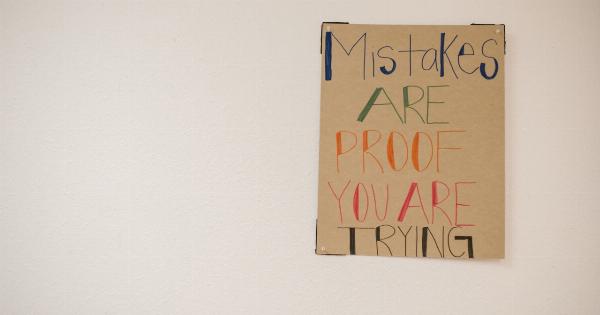Bullying and isolation are two major issues that affect people of all ages.
Both of these issues have negative impacts on mental health, but do they have equal dangers? The truth is that isolation can be more harmful than bullying, and in this article, we will explore why this is the case.
What is Bullying?
Bullying is a repeated aggressive behavior that is intentionally aimed at an individual or group of individuals. This behavior is meant to cause harm, either physical or emotional, to the victim.
Some common forms of bullying include verbal abuse, physical aggression, and social exclusion. Bullying can happen anywhere, including at school, in the workplace, and even online.
The Effects of Bullying
The effects of bullying can be serious and long-lasting. Victims of bullying may experience anxiety, depression, and other mental health issues. They may also have low self-esteem, difficulty making friends, and trouble concentrating in school or at work.
In severe cases, bullying can lead to suicidal thoughts or attempts.
What is Isolation?
Isolation is the state of being separated from others, either physically or emotionally. It can be self-imposed or imposed by others. Some common causes of isolation include social anxiety, shyness, and geographical location.
In some cases, isolation is a result of discrimination or cultural differences.
The Effects of Isolation
Isolation can also have serious mental health effects. People who are isolated may experience depression, loneliness, and anxiety. They may also have difficulty forming relationships and may feel like they don’t belong anywhere.
Isolation can also lead to increased stress levels and physical health problems.
Why Isolation is More Dangerous Than Bullying
While both bullying and isolation have negative impacts on mental health, isolation can be more dangerous than bullying. This is because isolation is often a silent killer.
It’s not as visible as bullying, and it’s not always easy to spot when someone is isolated. This means that people who are isolated may not get the help they need, and the effects of isolation can accumulate over time.
Isolation can also lead to a variety of negative coping mechanisms such as drug or alcohol abuse. People who are isolated may turn to these substances to cope with their feelings of loneliness and depression.
The Importance of Connection
Connection is crucial for good mental health. People need to feel like they belong somewhere, and they need to have a support system. When people are isolated, they lack these important connections. This can lead to a host of mental health problems.
On the other hand, when people have connections, they are more resilient and better able to cope with difficult situations. This is why it’s so important to reach out to people who are isolated.
Even small gestures of kindness can make a big difference in someone’s life.
What Can We Do?
If you know someone who is isolated, it’s important to reach out to them. Even small gestures like inviting them to lunch or sending them a text message can make a big difference.
It’s also important to be aware of the signs of isolation, such as withdrawal from social activities and changes in behavior.
For those who are experiencing isolation themselves, there are also steps that can be taken. This might include joining a club or organization, reaching out to family members, or seeking professional help.
It’s important to remember that there is always a way out of isolation.
Conclusion
While bullying and isolation both have negative impacts on mental health, isolation can be more dangerous. This is because it’s often a silent killer, and it’s not always easy to spot.
Connection is crucial for good mental health, and it’s important to reach out to people who are isolated. By doing so, we can help prevent the serious and long-lasting effects of isolation on mental health.






























